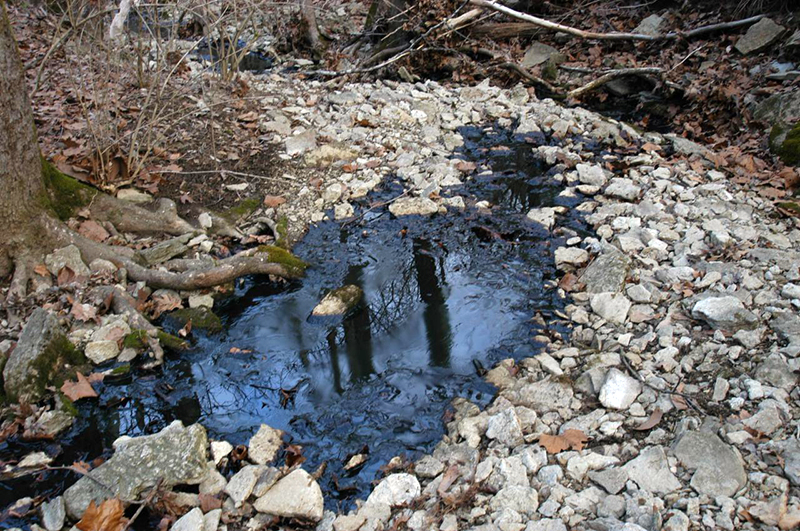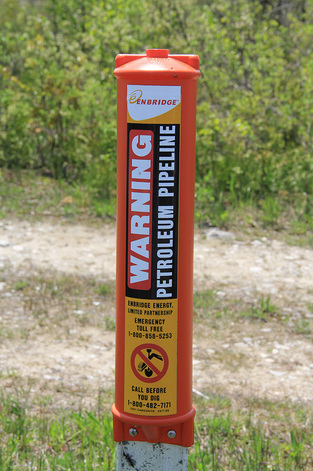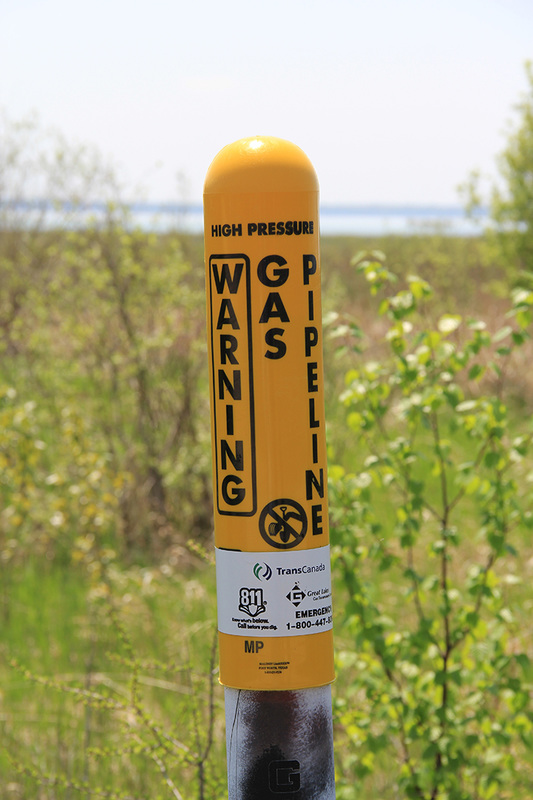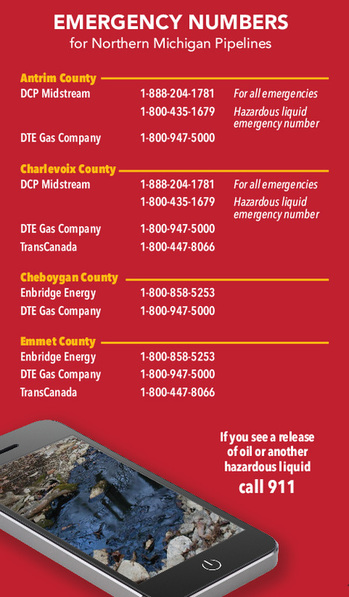One of the best ways to protect yourself and your family if you live near a pipeline is to learn how to become the eyes and ears on the ground to help protect the pipeline from damage. This means not only behaving responsibly yourself on and near the pipeline easement, but also making sure that when you see something happening that might damage the pipeline, or notice anything that indicates a problem with the pipeline, you contact the pipeline operator.
Call Before You Dig
One of the leading causes of pipeline incidents is third-party damage, often by a contractor, landscaper, or homeowner. Before you plant a tree, add a fence, or conduct any excavation on your property for any reason, call 811—it’s the law.
811 is a free, national service created to help protect home and business owners from unintentionally damaging underground utility lines while digging. The one-call system coordinates with pipeline companies to mark the location of underground lines before you dig.
MISS DIG is Michigan’s statewide One-Call notification system that processes calls from individuals planning to dig and notifies utility companies about these excavations. The utility companies then mark the dig site, indicating the approximate location of their underground public utility lines. In Michigan, you must contact MISS DIG at least 3 business days prior to conducting excavation on your property. You can contact MISS DIG at 1-800-482-7171 or 811. Additional information is also available on the MISS DIG website at http://www.missdig.org/.
Operators will mark the location of pipelines with yellow flags. Other underground utility lines will be marked with different color flags. Michigan’s Utility Color Code shows flag colors and the lines they represent.
Please note, the colorful flags used to mark underground utility lines can be very attractive to young children. If your child happens to pull out the utility flags, do not attempt to place the flags back in the ground. If the flags are accidentally removed, call the MISS DIG System at 1-800-482-7171 or 811 and indicate you need the utility lines in your yard marked again.
Signs of A Pipeline Leak
The ability to recognize a pipeline leak is a critical factor in pipeline safety. While pipeline leaks are unlikely, they can be dangerous and require caution and immediate action to protect people, property, and the environment. Here are some signs of a pipeline leak.
Smell
- An odor similar to gasoline or diesel fuel
- An unusual skunk or “rotten-egg” odor
Sight
- Dirt being blown or appearing to be thrown into the air
- A white vapor stream or mist-like cloud over the pipeline
- Unexpected frost or ice on the ground
- Water bubbling or being blown into the air
- Dead or dying vegetation in an otherwise green area
- Discolored snow or vegetation
- A dry area in a wet field
- Flames coming from the ground or appearing to burn above ground
- Liquid on the ground
- Oily sheen on water surfaces
Sound
- Hissing, gurgling, or roaring sound
In The Event Of A Pipeline Leak
If you suspect a pipeline may have a leak, leave the area immediately in an upwind direction.
If you see a release of oil or another hazardous liquid, immediately call the following three numbers:
- 911 to notify local authorities
- 800-292-4706 to notify State authorities (Michigan Pollution Emergency Alert System)
- 800-424-8802 to notify Federal authorities (National Response Center)
If it is possible to identify the pipeline operator, call the pipeline company as well. All pipeline markers provide the name of the operator, the emergency number, and the product being transported.
What NOT to do in the event of a leak:
- DO NOT use electronic devices, including light switches, garage door openers, or cell phones.
- DO NOT cause any open flame or other potential source of ignition, e.g. an electrical switch, vehicle ignition, or a lit match. Do not start motor vehicles.
- DO NOT ring doorbells to notify others of the leak; knock with your hand.
- DO NOT come into direct contact with any escaping liquids or gas.
- DO NOT drive into a leak or vapor cloud while leaving the area.
- DO NOT attempt to operate any pipeline valves yourself. You may inadvertently route more product to the leak or cause a secondary incident.
- DO NOT attempt to extinguish a petroleum product or natural gas fire. Wait for local firemen and other professionals trained to deal with such emergencies.







